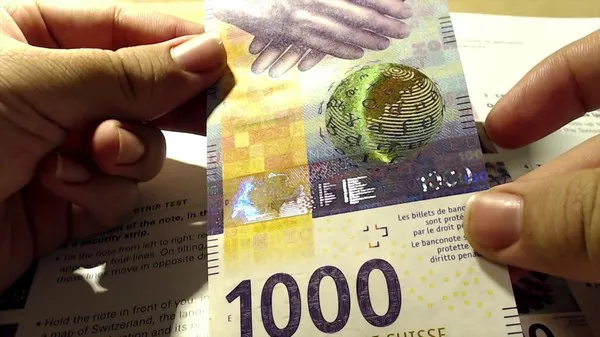CHF currency stands for the Swiss Franc, which is the official currency of Switzerland. It is also used as a reserve currency by other countries and international organizations. The CHF has a rich history and plays an important role in the global financial system.
History and Background
The origins of the Swiss Franc can be traced back to the 16th century, when various regions in Switzerland began minting their own coins. In 1798, during the French Revolution, Switzerland was invaded by French troops and its monetary system was reformed. The new system introduced the Swiss Franc as a common currency for the country.
Since then, the CHF has undergone several changes in its value and exchange rate regime. In the early 20th century, the Swiss government adopted a gold standard, which linked the value of the Franc to gold. This helped to stabilize the currency and made it attractive to investors and central banks around the world.
During World War I, many European countries abandoned the gold standard, but Switzerland maintained it. This allowed the CHF to become a safe haven currency, as investors sought to protect their wealth from inflation and economic uncertainty.
In 1936, Switzerland abandoned the gold standard, but continued to maintain a fixed exchange rate with the US Dollar until the 1970s. Since then, the CHF has been allowed to float freely against other currencies, which has led to fluctuations in its value.
Importance in the Global Financial System
The Swiss Franc is an important currency in the global financial system for several reasons. First, Switzerland is home to many multinational corporations and financial institutions, which use the CHF for transactions and investments. Second, the Swiss National Bank is highly respected for its monetary policy expertise and independence.
Third, the CHF is considered a safe haven currency because of Switzerland’s stable political and economic environment. During times of crisis or uncertainty, investors often flock to the CHF as a safe place to park their money.
Finally, the CHF is used as a reserve currency by other countries and international organizations. This means that central banks and other institutions hold CHF in their reserves as a way to diversify their holdings and reduce their exposure to other currencies.
Exchange Rates and Trading
The value of the Swiss Franc is influenced by a variety of factors, including economic indicators such as inflation and unemployment, as well as global events like political instability or natural disasters. In addition, the Swiss National Bank plays a role in managing the exchange rate by intervening in the foreign exchange markets.
The CHF is traded on the foreign exchange markets, where it is paired with other major currencies such as the US Dollar, Euro, and Japanese Yen. Traders can buy or sell CHF in order to speculate on its value or to hedge against currency risk.
Why is Switzerland called CHF?
Switzerland is not called CHF, but rather CHF is the official abbreviation for the Swiss Franc. The abbreviation CHF stands for “Confoederatio Helvetica Franc”, which roughly translates to “Swiss Confederation Franc” in Latin. This reflects Switzerland’s official name, the Swiss Confederation, and the fact that the Swiss Franc is the official currency of the country. The use of the abbreviation CHF is common in financial markets, where it is used to denote the Swiss Franc in currency trading and other financial transactions.
Conclusion
The Swiss Franc is an important currency in the global financial system, due to Switzerland’s stable political and economic environment, as well as the country’s reputation for financial expertise. The CHF has a rich history and has undergone several changes in its value and exchange rate regime over the years. Today, the CHF is used for transactions and investments by multinational corporations and financial institutions, and is held as a reserve currency by central banks and other organizations around the world.


